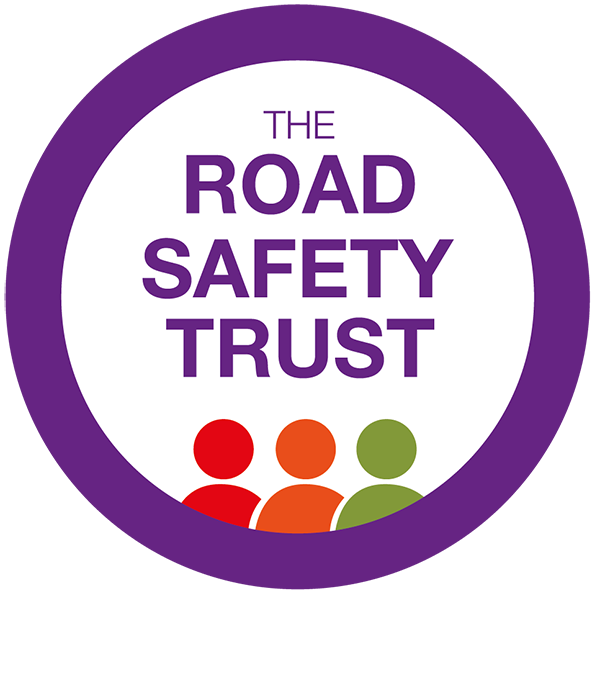The Road Safety Trust
Complaints
Introduction
The Road Safety Trust and its trading subsidiary, UKROEd, view complaints as an opportunity to learn from experience and to improve for the future, as well as an opportunity to put matters right for the person and/or organisation that has made the complaint. At the same time, both the Trust and UKROEd will take such steps as may be appropriate to avoid the need for a complaint to be submitted as this should be the last stage of any process.
We aim to ensure that:
• making a complaint is as easy as possible;
• we treat a complaint as a clear expression of dissatisfaction with our service which calls for an immediate response;
• we deal with it promptly, politely and, when appropriate, confidentially;
• we respond in the right way - for example, with an explanation, or an apology where we have got things wrong, or information on any action taken etc;
• we learn from complaints, use them to improve our service, and review annually our complaints policy and procedures.
We recognise that many concerns will be raised informally, and dealt with quickly. Our aims are to:
• resolve informal concerns quickly;
• keep matters low-key;
• enable mediation between the complainant and the individual to whom the complaint has been referred.
An informal approach is appropriate when it can be achieved. But if concerns cannot be satisfactorily resolved informally, then this formal complaints procedure should be followed.
Definition of a complaint
The organisation defines a complaint as 'any expression of dissatisfaction (with The Road Safety Trust or its trading subsidiary UKROEd, with a member of staff, or with a Trustee/UKROEd director) whether justified or not, that relates to The Road Safety Trust or its trading subsidiary, and that requires a formal response'.
The source of complaints
Complaints may come from a grant applicant or from any organisation or person who has a legitimate interest in the work undertaken by the Trust or its trading subsidiary, UKROEd.
Complaints about the work of UKROEd will be investigated by its separate and independent Board of Directors and UKROEd will have its own published procedure for dealing with complaints. Trustees of The Road Safety Trust Board do not have any involvement in UKROEd complaints.
This procedure does not cover internal complaints from members of staff who should refer to the HR-related Grievance Procedure.
Purpose
The formal complaints procedure is intended to ensure that all complaints are handled fairly, consistently and wherever possible resolved to the complainant's satisfaction.
The Road Safety Trust’s responsibility will be to:
• acknowledge the formal complaint in writing;
• respond within a stated period of time;
• deal reasonably and sensitively with the complaint;
• take action where appropriate.
A complainant's responsibility is to:
• bring their complaint, in writing, to The Road Safety Trust’s attention normally within 8 weeks of the issue arising;
• raise concerns promptly and directly with a member of staff in The Road Safety Trust;
• explain the problem as clearly and as fully as possible, including any action taken to date;
• allow The Road Safety Trust a reasonable time to deal with the matter;
• recognise that some circumstances may be beyond The Road Safety Trust’s control.
Responsibility for action
All Staff, and Trustees of The Road Safety Trust.
Confidentiality
Except in exceptional circumstances, every attempt will be made to ensure that both the complainant and The Road Safety Trust maintain confidentiality. However the circumstances giving rise to the complaint may be such that it may not be possible to maintain confidentiality (with each complaint judged on its own merit). Should this be the case, the situation will be explained to the complainant.
Monitoring and reporting
Trustees of The Road Safety Trust will receive an annual report (non-attributable to individuals) as part of its commitment to ongoing monitoring and continuous improvement.
Formal complaints procedure
Stage 1
If you are unable to resolve the issue informally, you should write in the first instance to the member of staff who dealt with you, or their manager, so that he or she has a chance to put things right. In your letter you should set out the details of your complaint, the consequences for you as a result, and the remedy you are seeking.
If your complaint concerns the Chief Executive of The Road Safety Trust, you should write to the Chair of the Trustee Board with the same information as above.
If your complaint concerns a Trustee of The Road Safety Trust, rather than a member of staff, you should write formally to the individual concerned, sending a copy to the Chief Executive of The Road Safety Trust for their information.
You can expect your complaint to be acknowledged within 4 working days of receipt. You should get a response and an explanation within 15 working days.
Due to the home-working situation of The Road Safety Trust staff team and privacy regulations, you are advised to email (rather than post) your formal complaint, with a request to forward to the appropriate staff member or Trustee/Chair, to: info@roadsafetytrust.org.uk
Stage 2
If you are not satisfied with the initial response to the complaint then you can write to The Road Safety Trust’s Chief Executive (or Chair in situations where the complaint is about the Chief Executive) via the above email address and ask for your complaint and the response to be reviewed. You can expect the Chief Executive/Chair to acknowledge your request within 4 working days of receipt and a response within 15 working days.
The Trust’s aim is to resolve all matters as quickly as possible. However, inevitably some issues will be more complex and therefore may require longer to be fully investigated. Consequently timescales given for handling and responding to complaints are indicative. If a matter requires more detailed investigation, you will receive an interim response describing what is being done to deal with the matter, and when a full reply can be expected and from whom.
Final stage
If you are not satisfied with the subsequent reply, then you have the option of writing (via the same email address) to the Chair of Trustees, stating the reason why you are dissatisfied with the outcome. You must do this within 10 days of receiving the written response.
The Chair of Trustees will respond normally within 10 working days to inform you of the action which will be taken to investigate your complaint, and when you can expect to hear the outcome of the investigation.
Note. If your original complaint was against the Chair of Trustees, or you are dissatisfied with the response from the Chair, then the final stage will be handled by the Vice Chair of The Road Safety Trust.
Responsibility
The overall responsibility for the investigation and resolution of complaints lies with the Board of Trustees of The Road Safety Trust and is tasked to the organisation’s Chief Executive.
The procedure will be reviewed annually by the Chief Executive.
Last revised: October 2024

